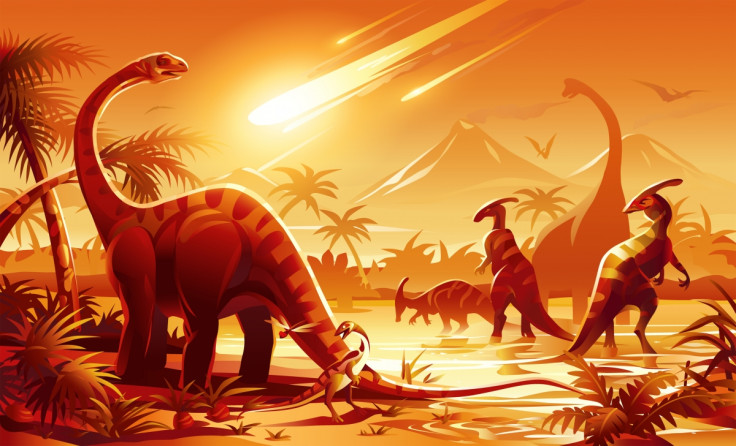Dinosaurs 'past their evolutionary prime' 50 million years before asteroid struck

Dinosaurs had started dying out tens of millions of years before the asteroid struck Earth, scientists have discovered. Researchers showed species were going extinct at a faster rate than new ones were emerging long before the mass extinction event 66 million years ago.
Past studies suggest dinosaur numbers were stable up until the point the asteroid plunged Earth into darkness and sparked the global cooling event that would ultimately cause their demise. However, a study published in PNAS has found dinosaurs had "lost their edge" as Earth's dominant species long before the asteroid hit.
Scientists from the Universities of Bristol and Reading used statistical analysis and fossil records to model dinosaur species decline. They found that 50 million years before the asteroid hit Earth, old species were already becoming extinct faster than new ones were emerging.
"We were not expecting this result," said Manabu Sakamoto, leader of the research. "While the asteroid impact is still the prime candidate for the dinosaurs' final disappearance, it is clear that they were already past their prime in an evolutionary sense.
Co-author Mike Benton said: "All the evidence shows that the dinosaurs, which had already been around, dominating terrestrial ecosystems for 150 million years, somehow lost the ability to speciate fast enough. This was likely to have contributed to their inability to recover from the environmental crisis caused by the impact."
Scientists also found some species became extinct quicker than others. For example, they say long-necked sauropods disappeared quicker than the carnivorous theropods. "It is difficult to say why this is the case," Chris Venditti, researcher working on the study, told IBTimes UK. "The faster decline in the sauropods might be as they are very large herbivores, and such animals are more prone to extinction as they need more resources. This effect is certainly true in other animal groups."
The scientists do not know what caused the decline. "It has been proposed [in previous work] that sea level change and a break-up of the [continents] was responsible for the decline," said Venditti. He says tectonic activity could have caused both of these changes, which would have led to widespread flooding.
"My personal opinion is that small rodent-like mammals contributed to their downfall, too. They could have eaten the dinosaur eggs, or out-competed them for the plants that were just beginning to develop at that period in time – known as angiosperms." He concedes this opinion is controversial however, as fossil evidence for mammals is limited.
The researchers say their results could be used to represent future biodiversity loss. "Our study strongly indicates that if a group of animals is experiencing a fast pace of extinction more so than they can replace, then they are prone to annihilation once a major catastrophe occurs," said Sakamoto. "This has huge implications for our current and future biodiversity, given the unprecedented speed at which species are going extinct owing to the ongoing human-caused climate change."
© Copyright IBTimes 2025. All rights reserved.






















